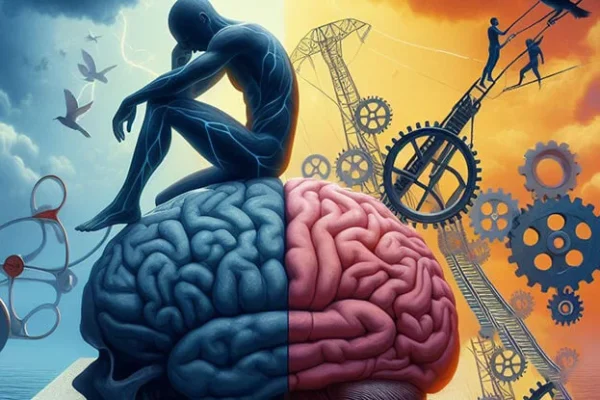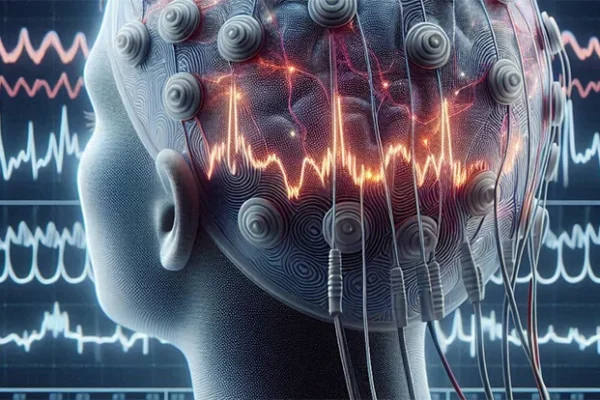Sanguine – one of the four main temperament types identified since Antiquity. This concept has come to us from the depths of time and is still actively used in psychology to define personality traits and human behavior. In this article, I will try to thoroughly explore the topic and answer the main question: “Who is […]
Psychosomatic illnesses: when the mind leaves traces on the body
Psychosomatic illnesses refer to physical ailments that arise or worsen under the influence of psychological factors such as stress, anxiety, depression, and other emotional disturbances. This concept is based on the close connection between the mind (psyche) and the body (soma), which exists in the human organism.
Playing for Success: The Psychological Benefits of Board Games
From classic masterpieces like chess and checkers to new captivating games such as “Catan,” “Codenames,” and “Azul,” board games attract people of all ages and backgrounds. Beyond simply being fun and engaging, they offer several psychological benefits for players.
Autogenic Training and its Benefits: Secrets of Internal Balance
Autogenic training is a psychotherapeutic method aimed at achieving deep relaxation and control over physical and mental processes in the body. It is based on self-suggestion, concentration on bodily sensations, and visualization.
Intellectual Developmental Delay: Understanding, Overcoming, Support
Intellectual Developmental Delay (IDD) is a condition in which a child demonstrates a slower pace in developing certain mental functions and skills compared to normative benchmarks for their age. This can affect various areas such as speech, motor skills, cognitive abilities, social-emotional development, and adaptive behavior. It’s important to understand that developmental delay is not […]
Cognitive Biases in Objective Reality or Mind Traps
In our digital world, overflowing with information and stimuli, we constantly make decisions and form judgments. However, these processes are not always entirely rational and objective. Every now and then, each of us makes systematic thinking errors known as cognitive biases.
Personality Types: Understanding Human Temperaments
Imagine finding yourself in a room full of unfamiliar people. Each one possesses a unique set of personality traits, habits, beliefs, and ways of interacting with the world. Some seem sociable and energetic, while others are more reserved and thoughtful. These differences can be explained by the fact that everyone has their own distinct personality […]
Box Breathing: Basics of Technique and Practice
In today’s fast-paced reality, filled with constant stress, deadlines, and information overload, it’s crucial to know how to maintain mental and physical balance. One of the most effective yet simple ways to relieve tension and restore balance is Box Breathing—a technique rooted in ancient yogic tradition thousands of years old.
Chronic Fatigue Syndrome: The Hidden Epidemic of Modern Society
Chronic Fatigue Syndrome (CFS), also known as Myalgic Encephalomyelitis (ME), is a serious and complex disorder characterized by extreme fatigue that does not go away with rest and significantly impacts daily life. This syndrome can affect people of any age, gender, or background, and its exact causes are still under active investigation.
Inner Landscape: Organizational Psychology in the Workplace
Organizational psychology is an interdisciplinary field that studies human behavior, relationships, and processes within the context of organizations and the work environment. It brings together knowledge from psychology, sociology, anthropology, and other behavioral sciences to understand and improve the performance of organizations.
Generalized Anxiety Disorder: When Worry Becomes Pathological
We all experience anxiety at certain moments in life—before an important event, in stressful situations, or when facing uncertainty. Anxiety is a normal human emotion that helps us mobilize resources to overcome challenges. However, for some people, anxiety becomes excessive and interferes with their ability to live their lives.
Diaphragmatic Breathing: The Key to Calm and Relaxation
We constantly face new demands and challenges at work, at home, and in personal relationships, which often lead to overload, exhaustion, and ultimately to chronic stress. This can negatively affect our physical and mental health, causing problems such as insomnia, headaches, high blood pressure, anxiety and depression.
Experimental Psychology and Its Role in Understanding Human Nature
Experimental Psychology is a field of psychological science that uses the scientific method and rigorous experimental procedures to study human behavior, cognitive processes, emotions, and relationships. It forms the foundation of modern scientific knowledge about the human mind and plays a fundamental role in the development of psychology as an empirical science.
How to Manage Stress: Secrets to Emotional Resilience
Stress has become an integral part of the daily life of a modern person. It is a state of emotional and physical tension that arises in response to demands or situations perceived as excessive or beyond our capabilities. Prolonged stress can negatively impact physical and mental health, triggering sleep problems, weakened immunity, anxiety, and depression.
Progressive Muscle Relaxation: The Art of Mindful Relaxation
In today’s world, full of stress, anxiety, and overwhelm, it is essential to have reliable tools for maintaining mental balance and physical health. One such effective tool is progressive muscle relaxation, a simple and effective way to relieve body tension and achieve deep relaxation.














